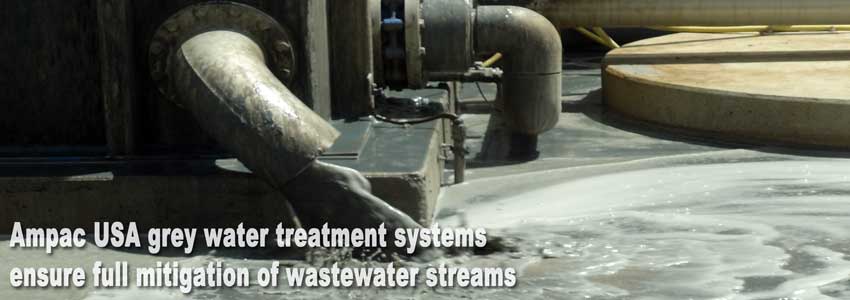Description
Greywater is the wastewater that has already been used in industrial, commercial and even domestic applications like washing machines, showers, baths, spas, dish washers and sinks. On average, over half of household water can be recycled as greywater, saving hundreds of litres of water every day. All waste water besides sewage water (black water) is known as greywater. The main difference between grey and black water is that sewage has a much higher organic loading. Grey water can be put to good use when it has been adequately treated. It is not potable due to bacteria and pathogens dissolved in it which spread diseases. This is why it is important to install a suitable grey water filtration system, to recycle potable water for landscape irrigation, laundry, car washing, and flushing toilets. There are nutrients such as phosphorus and nitrogen present in grey water which provide an excellent food source for plants. Ampac USA grey water systems are applied to mitigate wastewater streams prior to discharge or re-use.
Today, the popularity of grey water recycling and demand for commercially available grey water systems is growing rapidly. Simple systems usually do not treat the water before, dumping it directly onto the landscape. These are diversion devices, such as hoses and pumps, which only transfer and recycle the untreated water directly from the bathroom or washing machine to the garden or toilet.
Ampac USA grey water treatment systems ensure reduction of wastewater streams. More sophisticated filtration systems tend to remove the impurities in the wastewater before irrigation, by the use of a sand filter that gets rid of some of the impurities. When the water goes through the sand filter, then collected in a sump tank and pumped in the direction of irrigation or re-use in the toilet. The wastewater treatment process is carried out following the regulations draughted by the local municipality. It is collected, treated and disinfected at various stages:
Applications


